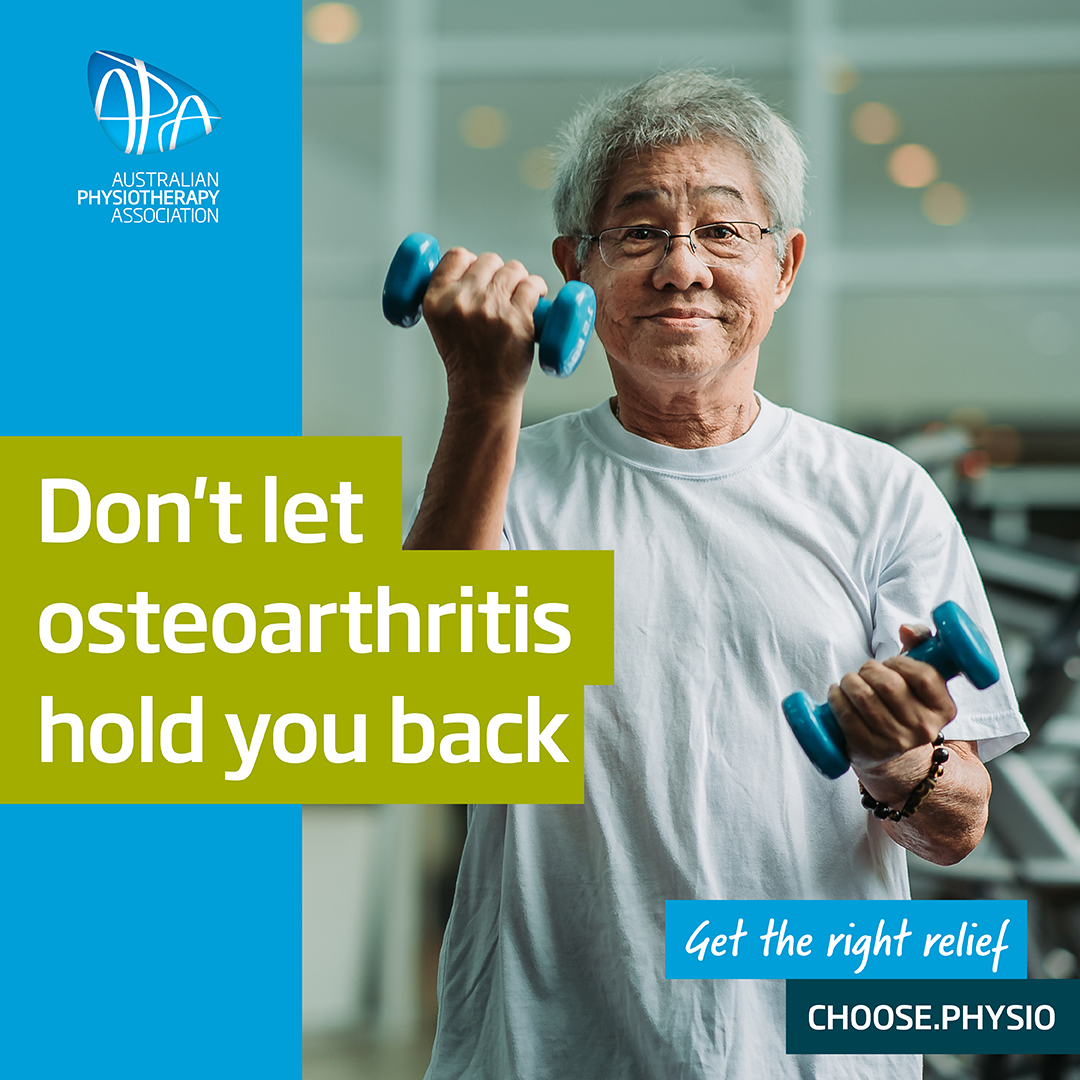
15 Feb Physiotherapy and Osteoarthritis
What is osteoarthritis?
Osteoarthritis (OA) is a relatively common condition which can lead to changes in joint structure. It is quite common in most joints of the body, including the knee, hip, spine, hands and feet.
OA often involves a decline in the health of the cartilage which lines the joint surfaces, and this may lead to changes in the bones around the joint. OA can lead to a reduced range of motion in the joint and a feeling of stiffness. The joint changes may or may not also cause increased pain and physical limitations. In long-term OA, the nervous system may adapt, and this can increase the pain response.
Symptoms and causes
OA symptoms include joint stiffness, pain and physical limitations. The pain and functional impact of OA can affect your mental health and anxiety levels, leaving you uncertain about how to get the right balance between rest and movement. Increased body-wide inflammation can contribute to OA through low levels of physical activity, higher levels of body fat and a diet high in processed foods.
Whilst OA is more prevalent with increasing age, it does not always mean that the pain or physical limitation you are experiencing will get worse over time. It is important to understand that the pain that occurs with OA is not strongly related to the deterioration that appears in the joint on scans, and that treatment can reduce symptoms and improve physical function.
Treatment
There is no “one-size-fits-all” to reducing the impacts that OA has on your movement and life. At Castle Hill Physiotherapy & Sports Injuries Centre our musculoskeletal physiotherapists use their clinical expertise to provide tailored advice and management.
By using an evidence-based approach our physiotherapists will work with you to explore all the possible interventions and work out what is best for you. This may include hands-on treatments or developing an exercise or activity program to reduce pain, improve flexibility and strength and regain the confidence to move.
High-level evidence shows that exercise and physical activity are key to reducing inflammation and pain and improving function. Your physiotherapist will help you to determine what level of activity is enough to challenge your body and your OA joint, but not enough to cause a flare in symptoms.
To book an appointment with our experienced musculoskeletal physiotherapists, Michael Dessen or Kathryn Barry, please call 02 96347788.
